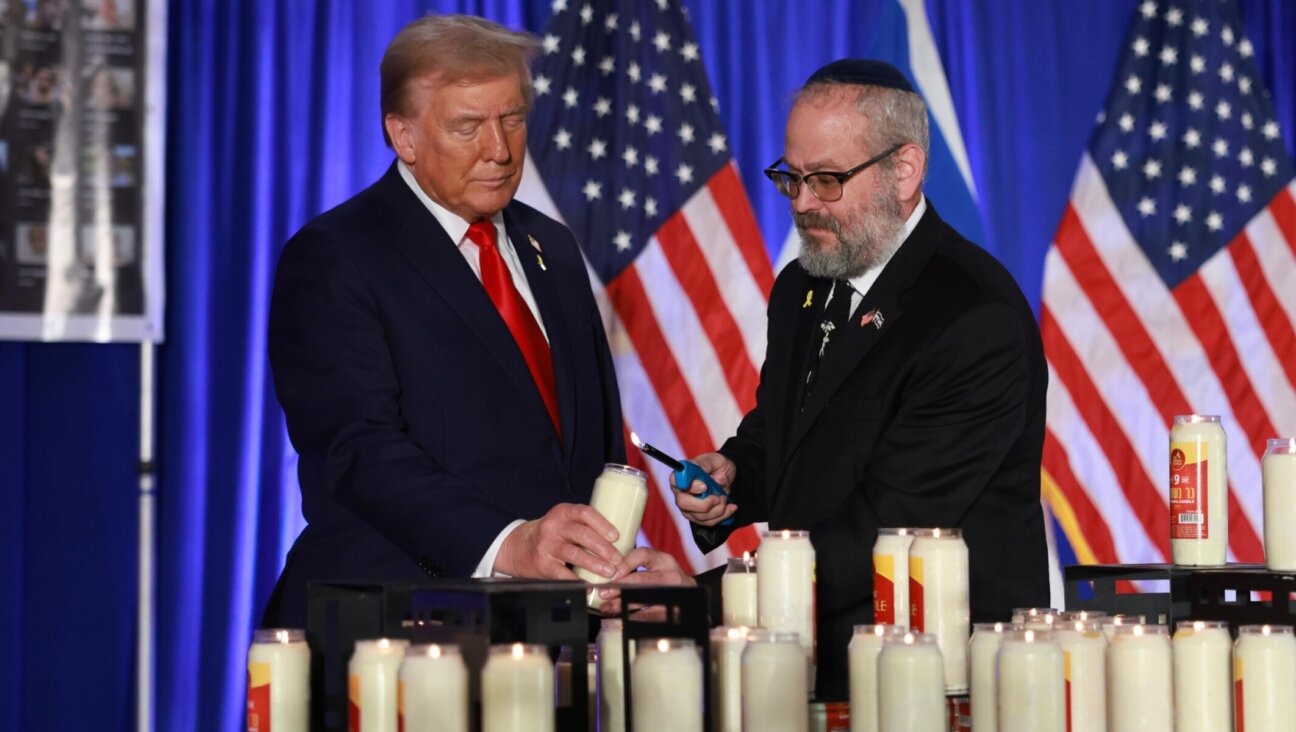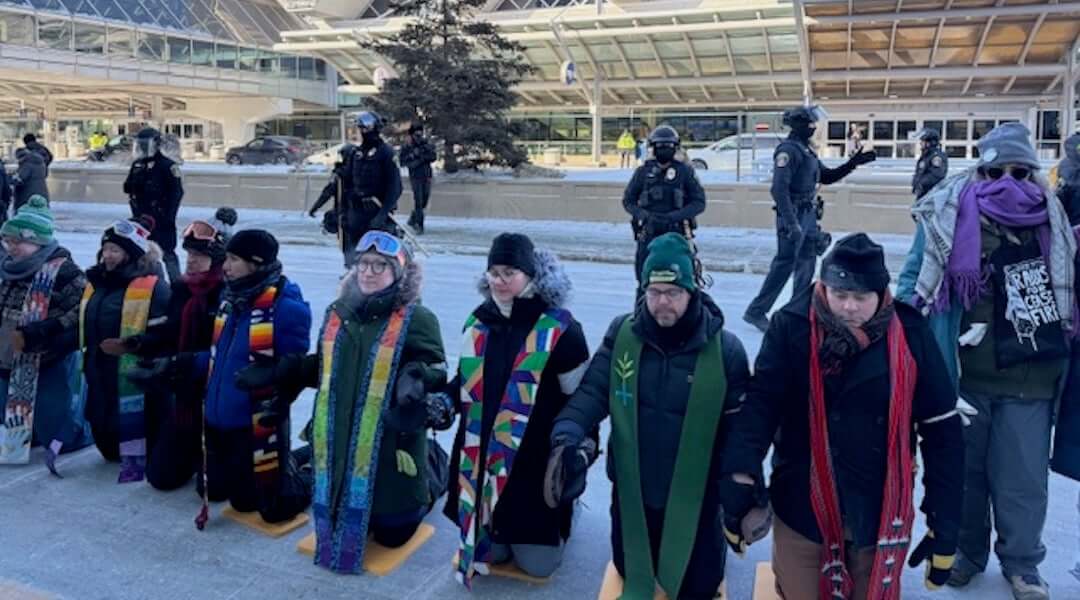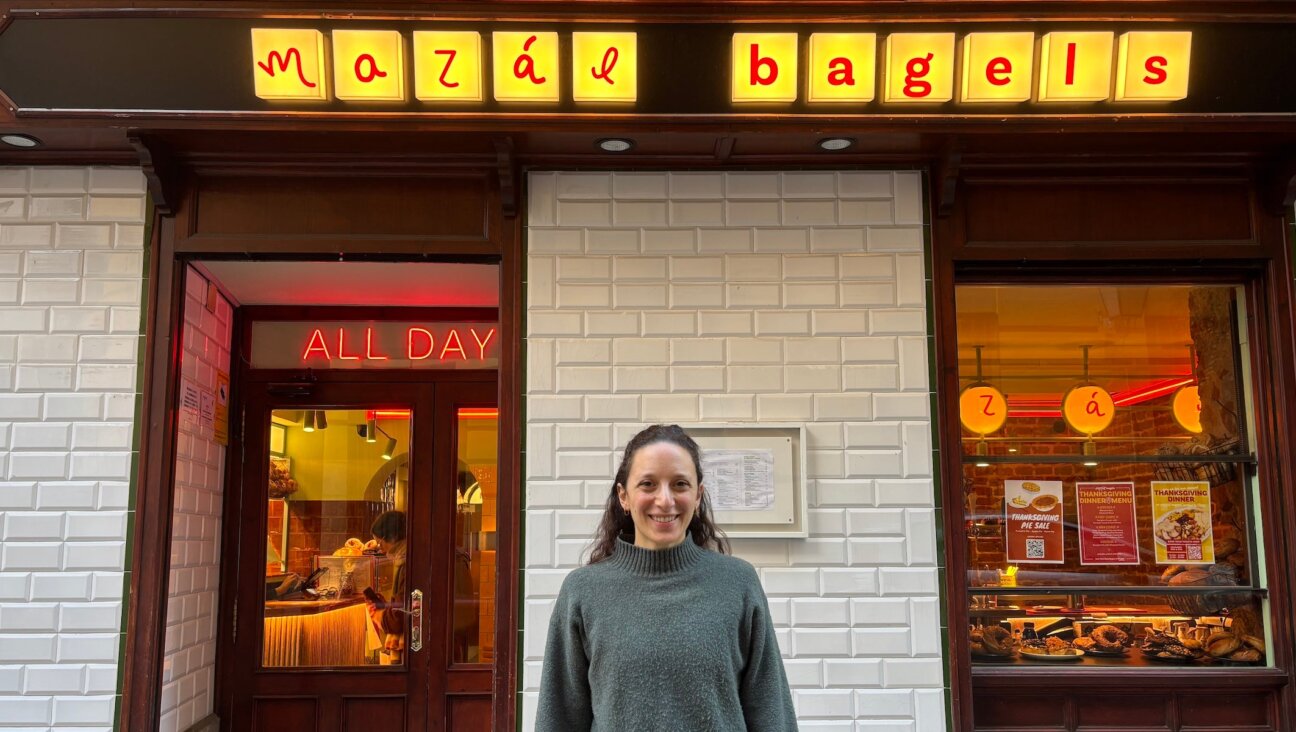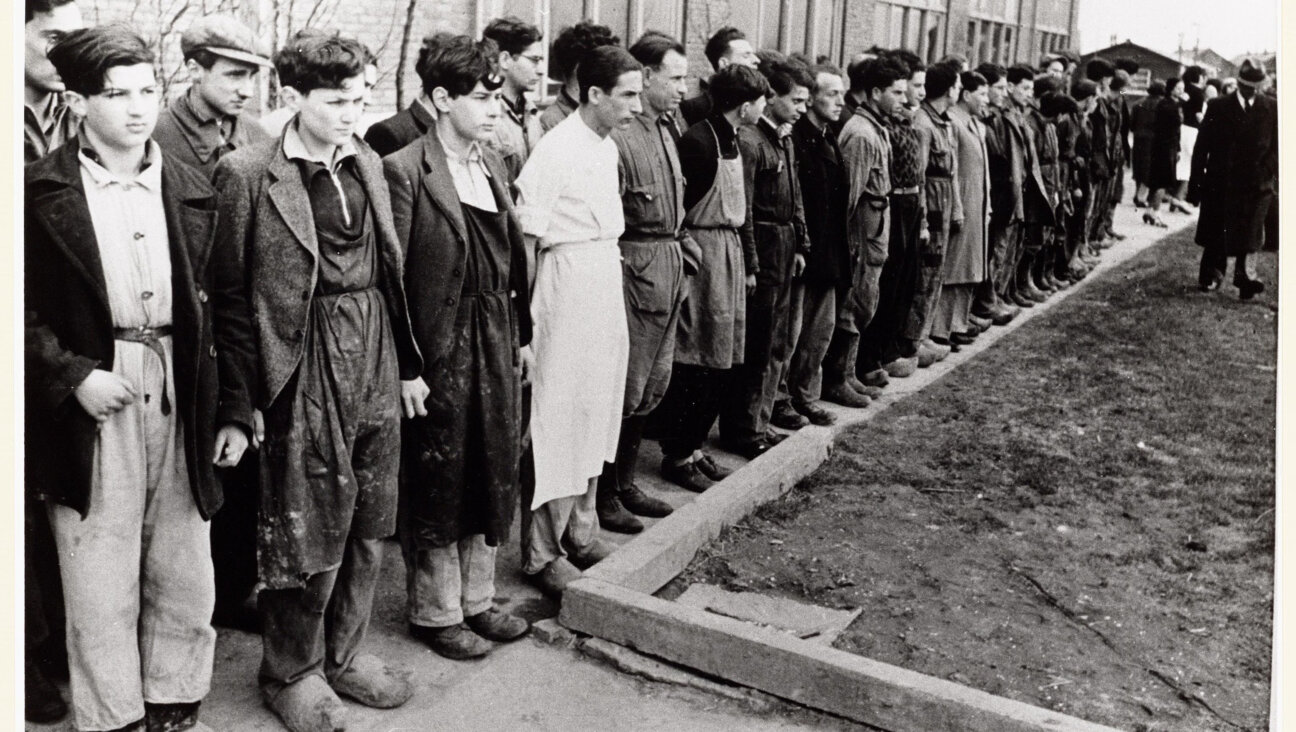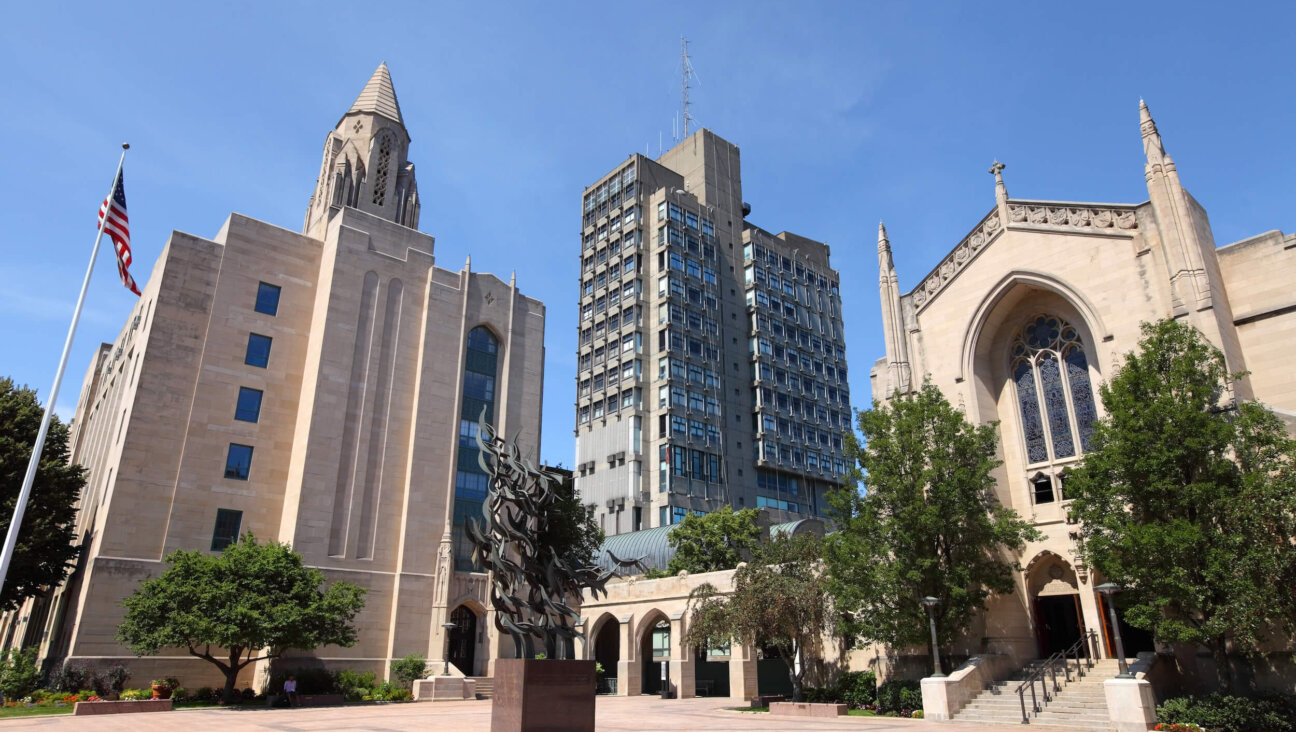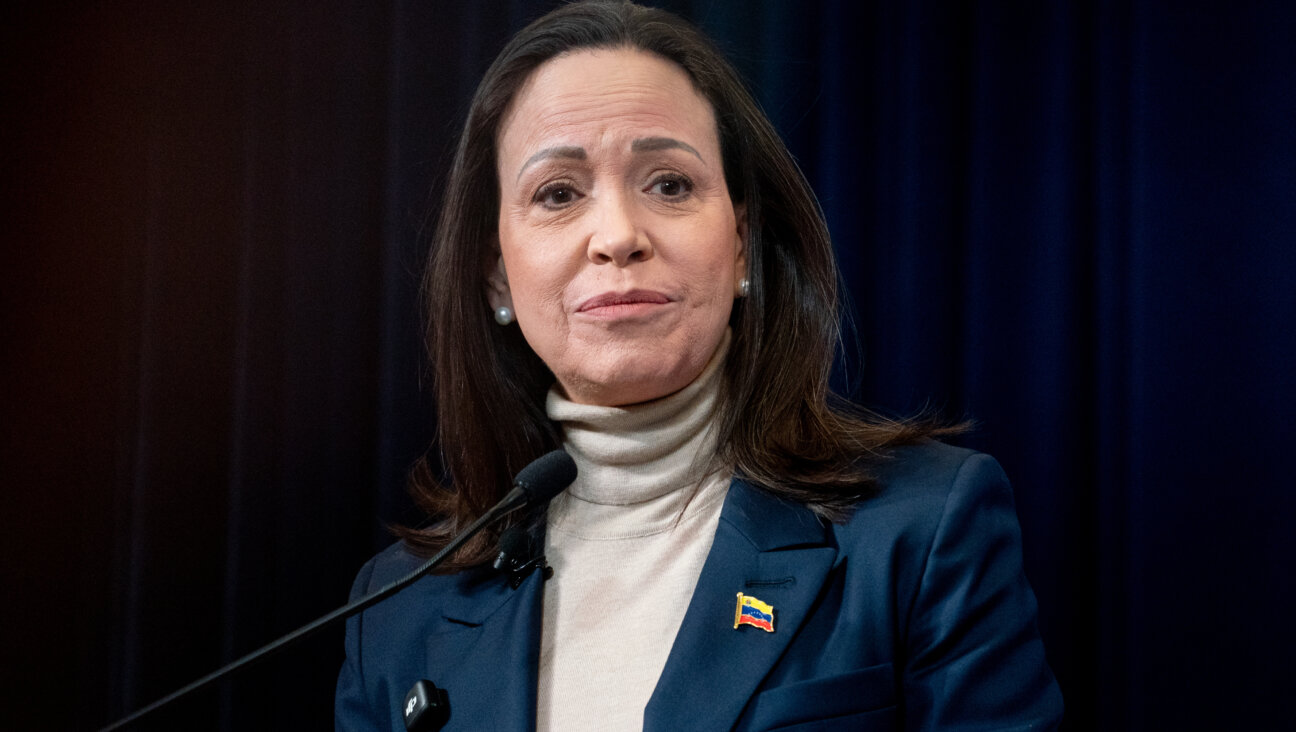International Holocaust Day Changes With the Times
On the same day next week, Israeli President Shimon Peres will address the German Parliament and Nobel laureate Elie Wiesel will appear before a special session of the Italian Chamber of Deputies in Rome.
The timing is not coincidental.
The events are focal points of international Holocaust Memorial Day, an annual observance on the anniversary of the Soviet army’s Jan. 27, 1945 liberation of Auschwitz, which is marked now by the United Nations and more than two dozen individual countries.
Each year, hundreds of events take place on or near that date. Britain, Italy and Germany have particularly extensive programs.
“There is a great sensitivity to this theme on both the local and institutional levels,” said Alessandro Ruben, a Jewish Italian member of parliament in Italy, where Holocaust Memorial Day has been marked since 2001. “Every year there are more and more events connected with it, including many, many educational initiatives in schools.”
The nature of the commemorations is a reflection of the times, too.
While most Holocaust Memorial Day initiatives are linked directly to the memory and impact of the Nazi genocide against the Jews, there is increasing emphasis on what the experience of the Holocaust can teach in the face of other genocides and persecution, such as those in Rwanda, Bosnia, Cambodia and Darfur. World War II-era persecution of Roma (Gypsies) and gays also is examined.
Rabbi Andrew Baker, the American Jewish Committee’s director of international Jewish affairs, said the shift in focus is to be expected.
“For Jews,” he said, the Holocaust “was a unique and unprecedented tragedy. But national and international commemoration events by their nature also stress the universal lessons that should be drawn from the event. As survivors and other eyewitnesses pass from our midst, those universal expressions naturally grow larger.”
At the same time, pro-Palestinian groups are trying to transform the international day of remembrance into an opportunity to criticize Israel.
Last year, for example, to protest Israel’s military operation against Hamas in the Gaza Strip, a British Muslim organization boycotted events in Britain, and the local government in Barcelona canceled a public candlelighting as part of the Holocaust Day commemoration.
“Marking the Jewish Holocaust while a Palestinian Holocaust is taking place is not right,” said a statement by an official, described as a representative of Barcelona City Hall, quoted in the La Vanguardia newspaper.
The move drew an outraged response from Britain’s Board of Deputies, the body that represents British Jews.
“The conflict between Israel and Hamas should have absolutely no bearing on a day which represents the global fight against hatred,” board spokesman Mark Frazer said.
“Apart from the obvious flawed logic in making the decision, this is an affront to all Holocaust survivors and to the memory of the millions of victims. This move should draw criticism in the strongest terms from all parts of the Spanish government.”
Though Germany has marked a Holocaust memorial day on Jan. 27 since 1996, the impetus for the observance in most countries came from a landmark Holocaust education forum that took place in Stockholm in 2000, a decade after the fall of communism enabled an uncensored exploration of history. In most communist states, Jewish issues had been suppressed and study or commemoration of the Shoah had been limited.
At the Stockholm Forum, leaders from 46 countries pledged to promote education and research about the Holocaust, and to “encourage appropriate forms of Holocaust remembrance, including an annual Day of Holocaust Remembrance.”
Most participating countries chose Jan. 27, given the importance of Auschwitz as a symbol of the Holocasut, and the U.N. General Assembly in 2005 designated the date as an International Day of Commemoration to honor the victims of the Holocaust.
But a number of countries chose dates that reflected Holocaust events on their own territory.
In Poland, for example, it is April 19, the anniversary of the Warsaw Ghetto Uprising. Romania chose Oct. 9, the date when deportations of Jews by the Nazi-allied Romanian government began in 1941.
The institution of Holocaust Memorial Day has not been without its critics. Some have voiced concern that institutionalizing Holocaust memory as an official date in a calendar risked turning commemoration into a cliche.
By and large, however, this does not seem to be the case.
“Consider how other historical events are remembered,” said Baker, who is also the representative for combating anti-Semitism of the Organization for Security and Cooperation in Europe. “Veterans Day in the United States seems primarily marked by department store sales, for example. In contrast, the Holocaust is recalled seriously and soberly.”
He added, “While I do not want to sound overly sanguine, I don’t think we should fear that the memory of the Holocaust will disappear or that Holocaust deniers will find new adherents.
“These last 20 years have witnessed a steady increase in educational and commemorative activities. And Holocaust denial is primarily a cudgel wielded by anti-Semites and haters of Israel, not something that is genuinely debated in any legitimate forum.”
Deborah Lipstadt, an Emory University historian who has written widely about the phenomenon of Holocaust denial, said she was “gratified as a historian that there is this attention to this event that is now in the past, especially as the survivor generation is passing.”
But, she said, “One hopes that there is attention in a deeper way: to examine how this emerged and happened, while the world stood silently by.”

